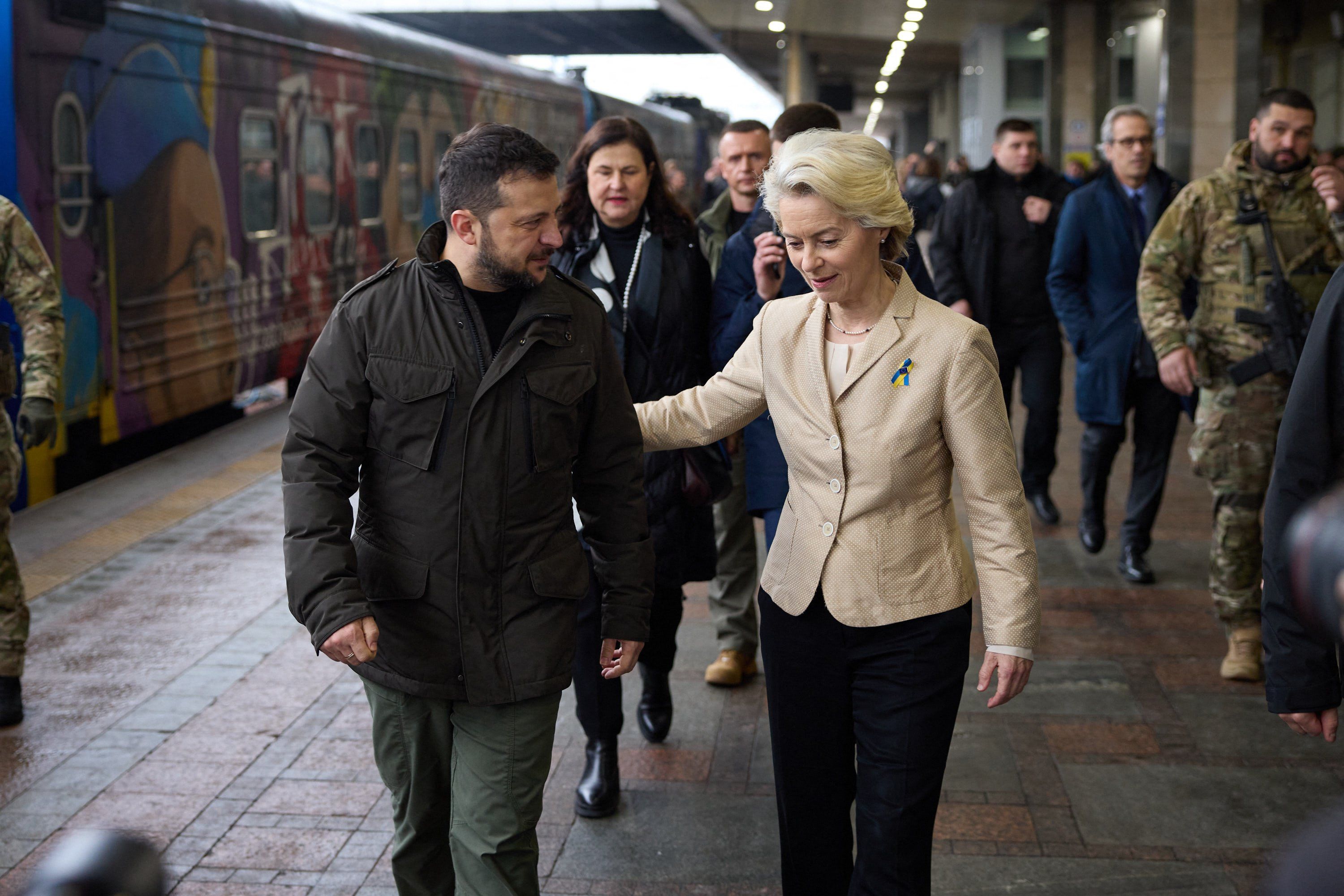As the Israel-Hamas war intensifies, there’s talk that Ukraine is being pressured to seek a settlement in its war with Russia, now in its 20th month.
On Saturday, a current and a former U.S. official, both anonymous, claimed US and European officials have spoken to Kyiv about possible peace negotiations. The speculation follows an Economist interview with Ukrainian Commander-in-Chief Valery Zaluzhny who said the conflict has hit a stalemate, and that unless Ukraine acquires more advanced weaponry and information technology, “(t)here will most likely be no deep and beautiful breakthrough.”
That prompted an aggressive response from Ukrainian President Volodymyr Zelensky. “Time has passed, people are tired … But this is not a stalemate,” Zelensky told a press conference at the EU on Saturday.
Zelensky also denied being pressured by the West to make concessions and on Sunday’s Meet the Press, Zelensky warned that: “If Russia will kill all of us, they will attack NATO countries and you will send your sons and daughters [to fight].”
He also addressed growing skepticism about aid for Ukraine among US Republicans and challenged Donald Trump – who’s asserted he could settle the conflict in 24 hours – to visit Kyiv. Zelensky promised to explain to the former US president “in 24 minutes” why Russia can’t be allowed to triumph.
How do Ukrainians and Russians feel? A Gallup poll last month found that while 60% of Ukrainians believe the country should continue to fight, that’s down from 70% in Sept. 2022, and nearly a third, 31%, now believe it’s time to negotiate, compared to 26% a year ago. Another survey last month by the Kyiv International Institute of Sociology found that while 14% said Ukraine can make some territorial concessions, up from 8% in Sept. 2022, 80% still say no territorial concessions should be made under any circumstances.
The Levada Center asked two groups of Russians questions about the next steps in the conflict. The first was asked whether they would support a decision to halt military operations and open negotiations: 70% supported the measures, while 21% were against. The second group was asked whether Putin should not only negotiate but also return occupied territories: that solution garnered only 34% support, while 57% were opposed. In short, war fatigue is real and has started to boost nominal support for negotiations – but little support for territorial concession.
Going nuclear: Meanwhile, there is concern that Moscow might seek a way out of the current stalemate by going nuclear. Last week, Russian President Vladimir Putin signed a bill revoking his country’s ratification of a global nuclear test ban.
On Sunday, Russia's defense ministry
announced that it had successfully tested a Bulava intercontinental ballistic missile from its strategic nuclear submarine, the Imperator Alexander III. We’ll be watching to see whether such saber-rattling adds pressure for a diplomatic resolution.
